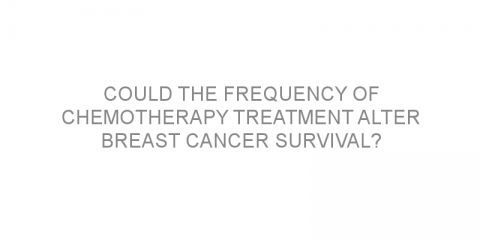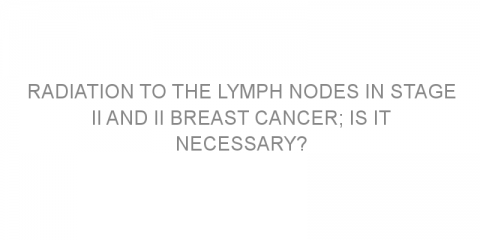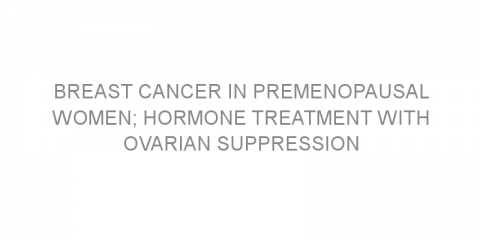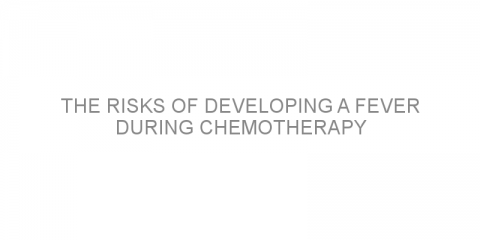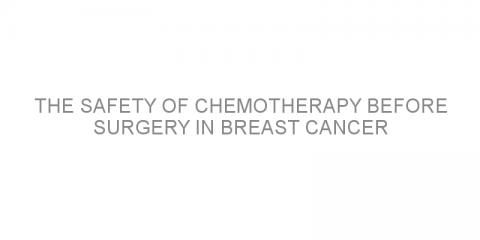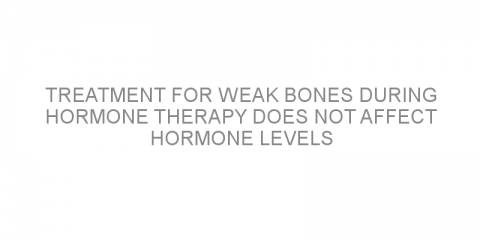In a nutshell This study examined the addition of everolimus (Afinitor) to exemestane (Aromasin) for the treatment of patients with hormone-receptor-positive (HR+) and HER2- breast cancer. The study concluded that adding everolimus (EVE) to exemestane (EXE) did not significantly improve overall survival. Some background EXE is a treatment...
Read MoreConfined or spread disease-Extends into the skin or chest wall Posts on Medivizor
Predicting response to lapatinib therapy in HER2 positive breast cancer
In a nutshell This study investigated predictors of response to therapy in patients with HER2-positive advanced breast cancer. The study concluded that mucocutaneous toxicities (those affecting the skin or mucous membranes) could be predictors of the response to lapatinib (Tykerb or Tyverb) in patients with HER2-positive advanced breast...
Read MoreLDH as an early predictor of cancer survival
In a nutshell This study investigated the relationship between lactate dehydrogenase (LDH) levels and cancer-specific survival. Researchers concluded that LDH can be used as an early indicator of cancer outcomes. Some background Early cancer detection methods have significantly improved cancer survival rates. There is increasing evidence to...
Read MoreDealing with cancer pain: Low-dose morphine examined
In a nutshell This study compared weak opioids and low-dose morphine in providing pain relief for moderate cancer pain. Researchers concluded that low-dose morphine is more suitable as pain management for moderate cancer pain than weaker pain relievers. Some background The guidelines for cancer pain relief developed by the World Health...
Read MoreGuidelines for patient specific treatments in early breast cancer
In a nutshell The authors aimed to give specific breast cancer treatment guidelines determined by medical experts. Some background The St. Gallen International Breast Cancer Conference is held every two years. Leading experts in breast cancer research meet at this conference to determine the most up-to-date guidelines for treatment. The 2015...
Read MoreCould the frequency of chemotherapy treatment alter breast cancer survival?
In a nutshell The authors aimed to determine both the effectiveness and toxicity of a type of chemotherapy treatment for breast cancer. Some background Adjuvant chemotherapy is a course of chemotherapy that patients often receive after their main treatment. Chemotherapy can reduce the risk of cancer recurrence (the cancer returns) and improve...
Read MoreRadiation to the lymph nodes in stage II and II breast cancer; is it necessary?
In a nutshell The authors aimed to assess the effectiveness of radiotherapy treatment (uses high-energy radiation to kill cancer cells by damaging their DNA) on women with breast cancer who have previously had surgery. Some background Breast- conserving surgery (removes the breast cancer but not the breast itself) is just one method of breast...
Read MoreBreast cancer in premenopausal women; hormone treatment with ovarian suppression
In a nutshell The authors aimed to determine the effectiveness of exemestane (Aromasin) to treat premenopausal women with breast cancer and treatment outlook in comparison to tamoxifen (Nolvadex). Some background Tamoxifen is a type of hormone therapy used to treat breast cancer. This type of treatment is generally specific for hormone receptor...
Read MoreThe risks of developing a fever during chemotherapy
In a nutshell The authors aimed to determine the risk factors for patients developing a fever during chemotherapy for breast cancer. Some background Febrile neutropenia is the term that describes the development of a fever in a patient who has neutropenia; low levels of granulocytes (a type of white blood cell). This can often be caused by...
Read MoreThe safety of chemotherapy before surgery in breast cancer
In a nutshell The authors aimed to assess the results of a specific pre-operative chemotherapy. Some background Pre-operative chemotherapy is used to shrink the tumor before surgery. Abraxane and cyclophosphamide (Endoxan) are used as combined chemotherapy and referred to as ABC. 5-fluorouracil (Adrucil), epirubicin (Pharmorubicin) and...
Read MoreTreatment for weak bones during hormone therapy does not affect hormone levels
In a nutshell This article looked at the effects of endocrine therapy on hormonal changes during cancer treatment. Some background Hormone therapy to treat breast cancer is called endocrine therapy. This treatment is used in hormone receptor positive (HR+) early breast cancer. It causes changes to hormone signalling which can lead to early...
Read MoreBreast cancer staging: one lymph node or several?
In a nutshell This paper compares the benefits and risks of axillary lymph node dissection compared to sentinel lymph node dissection. Some background Breast cancer can spread to nearby lymph nodes (organ that is involved in the immune system that is found throughout the body). Generally, for patients with no cancer in their lymph nodes,...
Read More




